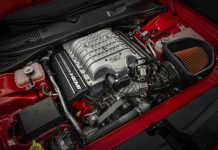Here’s the latest reader question, along with my reply!
Craig asks: You said in a past post that ’90s-era Rams were highly desired trucks and you went on to mention the mechanical fuel injection. Has your opinion changed and what else do you have to recommend these vehicles?
My reply: Indeed, I did – and do!
The ’90s-era (and older) Rams with the Cummins engine especially, because it is a brilliant engine. But mechanically injected diesels in general. They are what diesels are supposed to be all about – meaning, simpler and lower maintenance and more durable than gasoline engines. This is no longer true of modern diesels, which are more complicated than gasoline engines and need as much if not more maintenance and are probably not as durable because they are so complex.
Mechanically injected diesels can run on almost any “diesel” fuel, including vegetable oil. Modern diesels may be able to, but only if modified in most cases. They definitely cannot run without an alternator or battery – being electronically injected. Mechanically injected diesels can be roll or jump started and will run as long as you like without an alternator.
They also do not have DEF or particulate traps that require purging. Their maintenance needs are very low, other than oil and filter changes (and making sure you keep water and such out of the diesel). They are very DIY friendly as well, requiring no elaborate electronic diagnostic equipment to troubleshoot.
I also like these older trucks because they are simpler, generally. Very little in the way of replace rather than repair electronics, as in newer trucks. Transmissions with one rather than three (or more) overdrives (and automatics only). Manual/physically engaged 4WD and throttle rather than knobs/buttons and drive-by-wire.
The main worry with these things is rust and frame integrity especially. When you find a candidate, be sure you make sure it’s solid before you agree to buy it.
Otherwise, I doubt you’ll be unhappy. In fact, I think you’ll be the opposite!
. . .
Got a question about cars, Libertarian politics – or anything else? Click on the “ask Eric” link and send ’em in!
If you like what you’ve found here please consider supporting EPautos.
We depend on you to keep the wheels turning!
Our donate button is here.
If you prefer not to use PayPal, our mailing address is:
EPautos
721 Hummingbird Lane SE
Copper Hill, VA 24079
PS: Get an EPautos magnet or sticker or coaster in return for a $20 or more one-time donation or a $10 or more monthly recurring donation. (Please be sure to tell us you want a magnet or sticker or coaster – and also, provide an address, so we know where to mail the thing!)
My eBook about car buying (new and used) is also available for your favorite price – free! Click here. If that fails, email me at EPeters952@yahoo.com and I will send you a copy directly!











You can push-start a Diesel only if you can get enough oomph to get it going against 20:1 compression, and it does not have a fuel cutoff solenoid to be electrically held open It can be done though.
It can be done though.
For smaller vehicles, Bosch had a bulletproof rotary mechanical injection pump, used by all but the Japanese and Italian carmakers, and the British. The Italians eventually got there, but they went through a phase in the 80’s of using indigenous pumps of dubious reliability I hear. I also understand the Japanese used Diesel Kiki pumps, licensed copies of the Bosch rotary pump? Of course, there were British Diesels with CAV pumps, later bought out by Lucas…one can only speculate at the horror of a Diesel injection pump made by Lucas.
The only downside to the fully mechanical pump is if the engine gets turbocharged…then, the extra fuelling and timing changes needed under boost must be handled somehow. The kludges Bosch went to (vacuum operated gizmos) on VW TDIs for example reduced reliability some.
Later, the same pump was modified with a motorized throttle arm, and solenoid-operated advance piston, allowing computer control. The injectors remain pop-off valves, but with one injector equipped with a pin-lift sensor so the computer knows what the pump is doing. Crank and cam position sensors required too, of course. The computer-controlled mechanical rotary pumps are pretty reliable, but there are now more gizmos and a computer in the path. Ultimate long-term reliability will be affected. Now, if the computer gets a wild immobilizer hair, it can and will shut the pump down, and not just the fuel cutoff solenoid. A mechanical-only pump can’t have that happen. You can at least hot-wire the fuel cutoff solenoid if you have some ignition switch snafu and start the beast, or if it’s old enough, it may have a Bowden-cable operated mechanical fuel shutoff.
Last, if you go far enough back on just about everyone’s Diesels, you find indirect injection engines. Those have their own quirks, but could be as reliable as the latter-day direct injected engines. You’ll find Bosch rotary pumps on them, and CAV/Lucas, and Diesel Kiki, and SPICA, etc.
One more note. The O-rings and seals on older pumps may not be able to handle the EPA-mandated 2010’s Diesel blends well. You may have to replace them. The Bosch VE pumps had this problem on the top seal especially, even into the 2000’s.
The late 80’s/90’s probably had the best combination of mechanical injection and direct injection engines, IMHO, as long as you were looking for a normally aspirated engine. A re-seal maybe, and off you go for another 250K miles.
Getting there! Everything is basically moved; just a matter of unpacking now!
For anyone in the market for a mechanically injected diesel Ram (1989-early 1998 I believe, although the electronically controlled injection pump used on late 1998-2002 engines can be easily retrofitted with a mechanical pump) here are a few things to keep in mind.
1. Look into whether the killer dowel pin has been addressed. This pin was used to help align the engine during assembly but tends to fall out due to engine vibration and get ground up in the timing gears.
2. The factory automatic transmissions are weak and do not hold up over time, especially the automatics used in 1994 and newer trucks.
3. Expect to pay a premium. Good deals are hard to come by.
Good stuff, Logan!
How goes the move, by the way? Dawn says g’day, too!